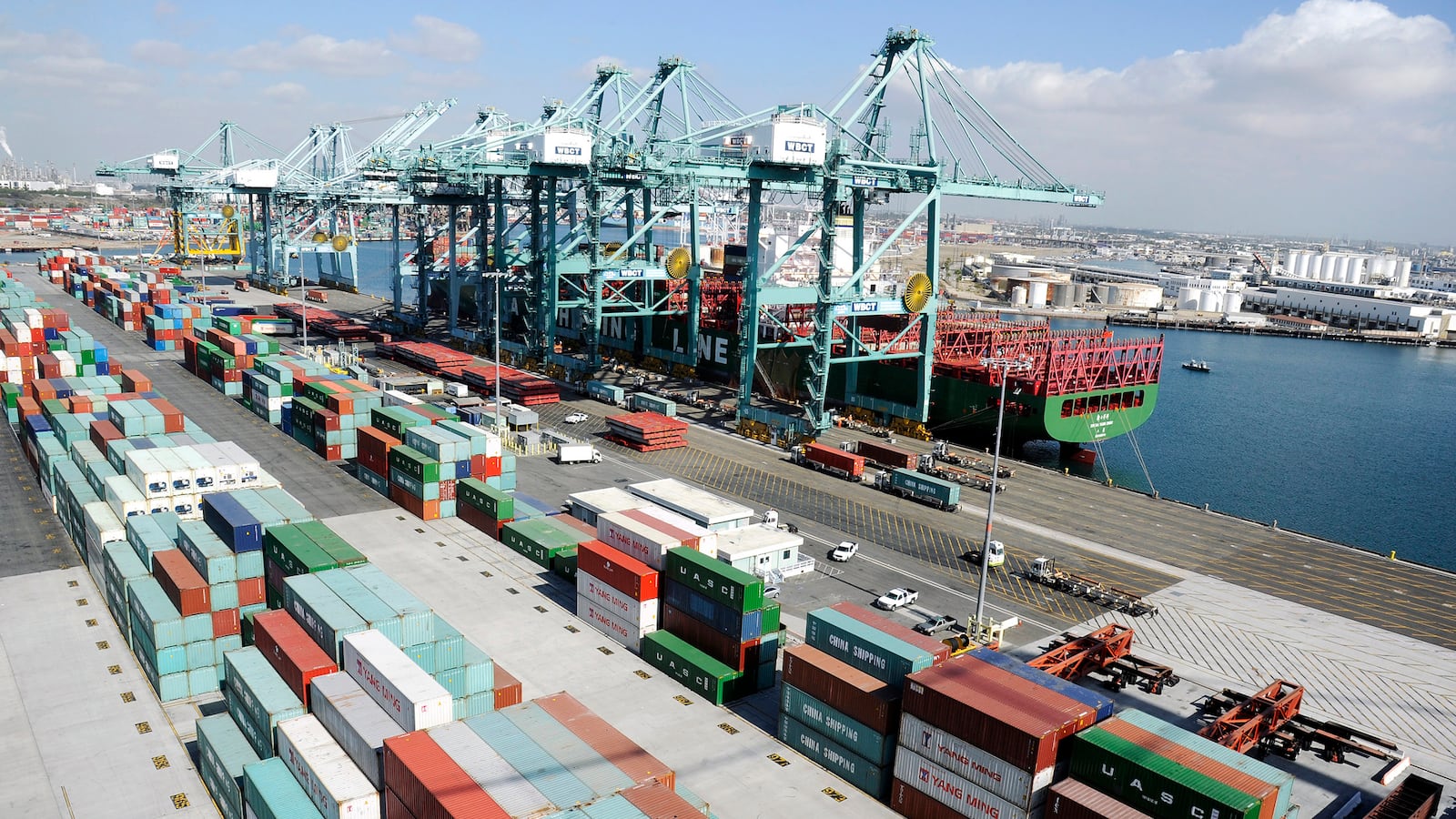If any state ought to be pro-trade, it’s California. America’s second-largest exporter, after Texas, the Golden State boasts 840 miles of coastline rimming the burgeoning Asia-Pacific economy, as well as the nation’s busiest port, Los Angeles. Trade supports the jobs of more than 1 in 5 Californians.
Yet most of California’s overwhelmingly Democratic congressional delegation refuses to support President Obama’s trade agenda.
Only two of the state’s 39 House Democrats—Representatives Ami Bera of Sacramento and Jim Costa of Fresno—have publicly backed Obama’s request for trade negotiating authority (or TPA in Washington speak). The rest are either opposed or undeclared. Has this famously entrepreneurial, outward-looking and future-oriented state suddenly caught the protectionist virus?
Not likely. It’s true that trade has become a tough issue for Democrats in recent decades as California has become more liberal. But the White House did manage to muster double-digit support among House Democrats there for pacts with Korea and Panama. The paucity of support this time may reflect Obama’s declining clout, but it’s also a testament to the success of a ham-fisted campaign of political intimidation spearheaded by organized labor.
In a raw display of financial muscle, the AFL-CIO has frozen all contributions to Democrats until after the TPA vote. Not only that, but labor and anti-trade “progressives” promise to spend lavishly on primary challenges to defeat Democrats, and if that doesn’t work, to spend more against them in the general election—to the benefit of Republicans.
Remember that the next time you hear progressives bemoaning the sinister power of money in American politics. It’s insidious all right, but it’s hardly confined to the Koch brothers and right-wing super PACs.
Organized labor has organized protests in Representative Bera’s district, launched an ad buy slamming him for betraying “working people” and taken out mock want ads for a replacement. The intrepid Bera, however, is unbowed: “Really what they’re trying to do is bully me into something that’s wrong for my district.”
Unfortunately, other California Democrats seem less inclined to stand up for the economic interests of their districts and state.
California, after all, is the nation’s leading exporter of computer and electronic equipment, and a major exporter of software and high-tech services. Yet Democrats representing Silicon Valley and San Francisco haven’t come out for TPA, which Obama says is essential to negotiating a Trans-Pacific Partnership with 11 countries that account for 40 percent of global commerce.
And it’s not all high tech: The state also is a major exporter of manufacturing goods and is America’s leading exporter of agricultural products.
All of which raises an interesting question: Are California’s tech companies, farmers, wine producers and transport equipment manufacturers—not to mention the state’s 4.7 million trade-dependent workers—paying attention to how their congressional representatives plan to vote? Maybe they should, along with more than 72,000 small enterprises (with fewer than 500 employees) that also trade in global markets.
The rise of protectionist sentiment on the left—now rebranded more fashionably as “populism”—is a big problem for Democrats. It threatens to taint the party with mindless business bashing, a reactionary stance toward economic progress, and nostalgia for the industrial landscape of the 1970s. None of this will help Democrats seize the high ground of jobs, innovation and growth in 2016.
As Obama often points out, blocking new trade agreements won’t freeze trade or throw globalization into reverse. It will deprive Washington of the ability to set fair and liberal rules for international trade—including strong labor and human-rights and environmental protections—while making it harder for America to tap into an Asian-Pacific economy that will add billions of new middle-class consumers in coming decades.
Labor’s fratricidal campaign against pro-growth progressives couldn’t come at a worse time. Republican sweeps in 2010 and 2014 have consolidated the GOP’s hold on Congress, especially the House of Representatives. A string of divisive primary challenges aimed at punishing pro-trade Democrats will elect more Republicans, especially in places less deeply “blue” than California.
Instead of trying to create a left-wing version of the Tea Party, populists would be wise to leave House Democrats free to vote their conscience and their districts. According to Pew Research, a solid majority of Democrats (58 percent) think free-trade agreements are good for the United States.
And such attitudes are likely to persist, since millennials (69 percent) and Hispanics (71 percent) are particularly supportive of trade deals. What labor and other anti-trade activists are really doing is driving a wedge into the heart of the progressive coalition.
Finally, labor does itself no favors by making trade a political loyalty test for Democrats. On the contrary, it seems bent on confirming the worst stereotype of unions as a retrograde force in American life. Labor’s claims to be channeling the just demands of “working people” ring hollow at a time when less than 8 percent of the private U.S. workforce belongs to unions.
It’s sad to see U.S. unions wasting their waning power on a doomed crusade to protect yesterday’s jobs at the expense of tomorrow’s. If labor really wants to help working Americans, it should stop fighting rearguard actions, and invent new ways to equip them to succeed in a global knowledge economy.
Will Marshall is president of the Progressive Policy Institute.






